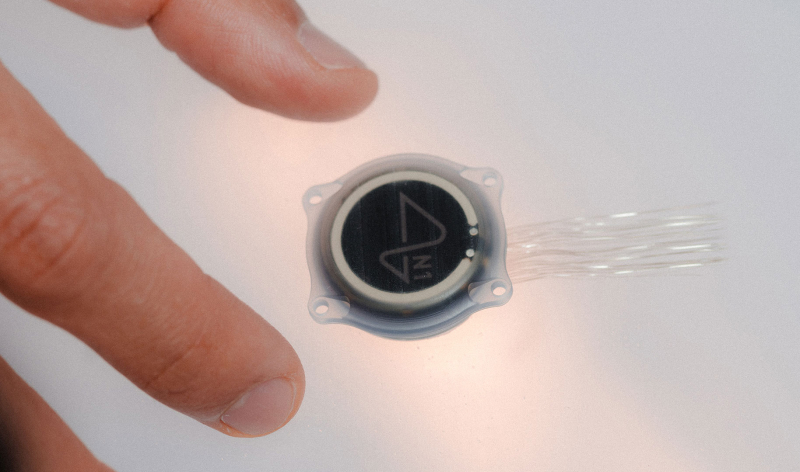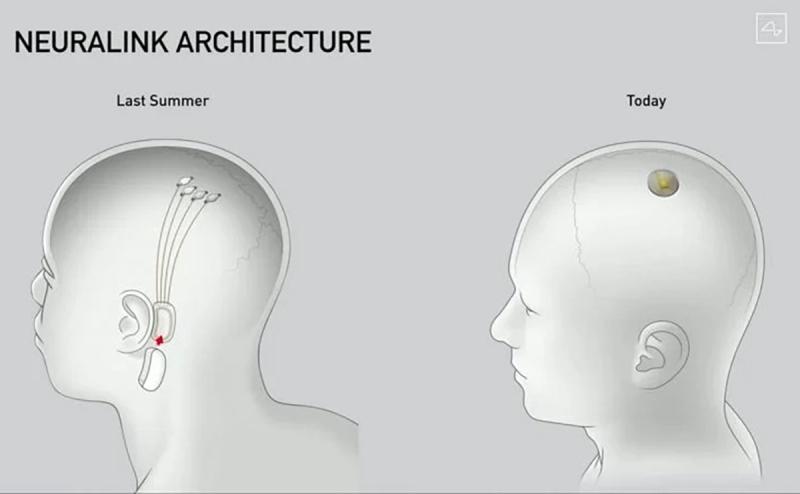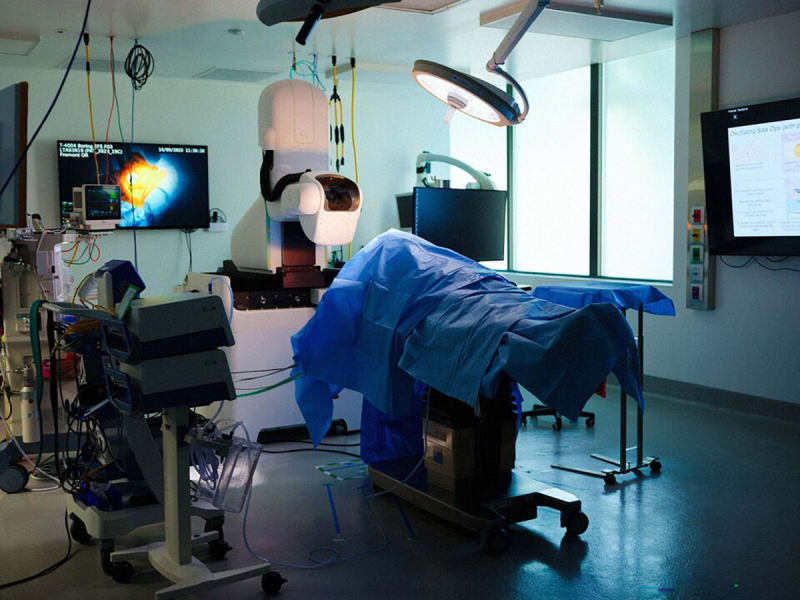Section partner?

According to Elon Musk biographer Ashley Vance, thousands of people have expressed a desire to receive the Neuralink brain implant. The company, which Musk founded in 2016, has yet to perform a single operation on a person, but has a goal of operating on 11 patients next year and more than 22,000 by 2030.

Neuralink implant prototype. Photo: Damien Meloni for Bloomberg
In May, the US Food and Drug Administration allowed Neuralink to begin testing its device in humans. Musk called it the Fitbit in your skull. In March, the FDA rejected Neuralink's application for human testing, citing safety concerns that wires connected to the brain chip could move in the head and the chip could potentially overheat.
Neuralink began recruiting participants for the human trial in September. The company is looking for people with quadriplegia due to spinal cord injury or multiple sclerosis.
Subsequently, Neuralink hopes to create a device that will enable symbiosis between humans and machines and allow people to send messages or play games using only opinions. But first of all, the company strives to help people with neurological disorders.

Despite expressions of interest from thousands of potential patients, the company is still looking for its first volunteer “willing to remove a piece of their skull so a large robot can insert a series of electrodes and ultra-thin wires into their brain.”
Musk's biographer says it takes a surgeon several hours to perform the craniotomy, then about 25 minutes for a robot to insert the device along with an ultra-thin array of about 64 different wires. The device will replace the removed part of the skull.
Neuralink has performed 155 robot-assisted implantations in a variety of animals, including pigs and monkeys. But in typical Musk fashion, the billionaire continues to insist that the robot move faster and that the operation be performed without human assistance.

Neuralink surgical robot with a mannequin under a sheet. Photo: Damien Maloney for Bloomberg
Musk is concerned about competition from other brain computing startups like Synchron and Onward, which have already begun human trials.
“They're kicking our ass right now,” Musk said after Synchron implanted its first device in a US patient in July 2022. In December 2021, one of Synchron's patients in Australia was the first person to send a tweet using only their own opinions.
The billionaire is demanding Neuralink pick up the pace “like the end of the world is approaching” to keep up with AI and the possibility of artificial intelligence that won't be friendly to people.
While Musk's “manic sense of urgency” may have worked at Tesla or SpaceX, where he has initiated sprints and slept on the factory floor to meet deadlines, at least one Neuralink executive is advocating caution.
“We can't blow up the first three. That’s not an option here,” says Siobhan Zilis, director of special projects at Neuralink and mother of Musk’s two children, recalling the first three SpaceX rockets that exploded.
Sources: Insider, Bloomberg
Section partner?


Brave Inventors is a national platform for inventors and wartime inventions. Here you can post your military inventions, talk about developments and prototypes, find the necessary funding or mentor, and also get more opportunities for cooperation with manufacturers, enterprises and businesses. You can support inventions using this link.
